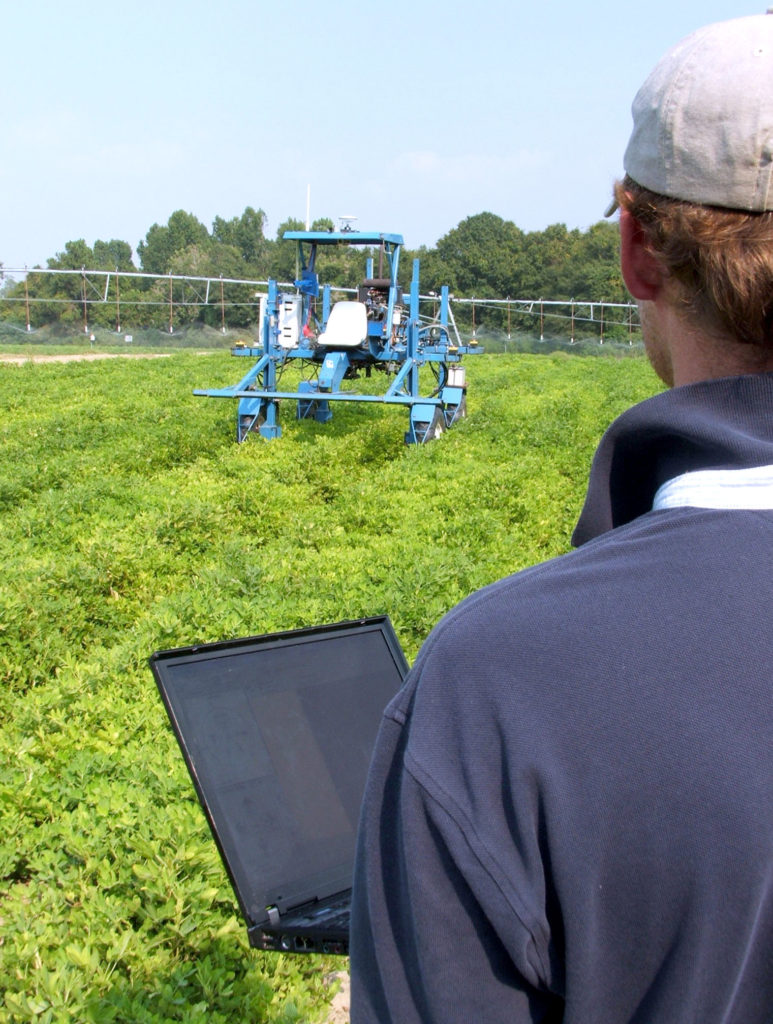Wireless Internet communication technology can allow a farmer to work his land thousands of miles away. It can give a doctor quick access to patients’ records. It can connect a country store to the world.
The “UnWired: Rural Wireless Conference” Nov. 1-2 at UGA’s Tifton campus will bring experts, researchers and users of wireless technology to rural south Georgia.
“Most conferences like this take place in large urban areas,” says Craig Kvien, chair of the UGA National Environmentally Sound Production Agriculture Lab in Tifton.
“We’re bringing many people here who have worked a lot of the bugs out of this technology,” says Kvien, who is helping to organize the event. “The conference will demonstrate and investigate how this technology can be used for rural economic development.”
The technical jargon of wireless communications can leave many people scratching their heads, according to Kvien.
“But anyone who attends this conference will walk away with a much better understanding of the potential of this technology,” he says.
The conference keynote speaker, Hans-Werner Braun, spearheads the High-Performance Wireless Research and Education Network at the University of California at San Diego. The National Science Foundation funds this project, which has set up a wireless network over hundreds of square miles, connecting schools, research stations and remote Indian tribes in rural San Diego County.
“Braun’s work connects the unconnected,” Kvien says.
Wade Mitchell will tell how wireless technology has revolutionized his Iowa farm. Mitchell and his son, Clay, farm 2,500 acres of corn and soybeans. Their farm-wide, high-speed wireless network with Internet access allows them to remotely control grain handling and storage facilities, auto-steer tractors and monitor fields.
Wireless technology has “turned our tractor cabs into mobile offices,” he says. “It has saved us hugely in labor and time and allowed us to be more accurate in our operation.”
Professionals from two Tifton healthcare facilities will discuss how going wireless has improved their operations and allowed doctors to more efficiently treat patients.
Paul Mask, an assistant director in the Alabama Cooperative Extension System, will explain how wireless communications can help extension agents better serve their clients.
The UGA College of Agricultural and Environmental Sciences precision agriculture team will show how off-the-shelf products can monitor farm facilities and irrigation and control a robot. And representatives from Cattlelog will demonstrate how radio frequency identification can help the cattle industry run smoothly and safely.
Funding agencies will be at the conference, too. So will those who’ve received funding for wireless projects.
“Not only will attendees learn about the advances and opportunities,” Kvien says, “but also where to go to help to fund them.”
Other conference topics will include living wireless from a community perspective, funding a large-scale wireless network, setting up a wireless hotspot and pitfalls of going wireless.
More information about the conference-including how to register-is available online (nespal.org/unwired05/).
